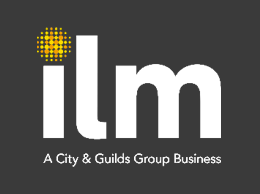Simply put, inclusion makes employees feel like they belong, that they have a place in the business in the long term and that they will be appreciated for their hard work. These are the conditions that can lead to the kind of inclusive culture that releases the power of diversity.
Being an inclusive manager is perhaps the most critical component of creating a more inclusive work environment. That’s because, for staff, managers are universally known as the face of the business. They lead teams, serve as a conduit to leadership—and have a pivotal role that can make or break the relationship between employees and their business.
There are many qualities of an inclusive manager, but these seem sensible to adopt:
Self-awareness. Inclusive managers are open to reflecting on and addressing their own biases, with the knowledge that everyone has blind spots. They realise the world is constantly shifting and that riding out challenges and changes means embracing a quest for life-long learning and personal discovery.
Empathy (that they put into action). They care for everyone on the team, and so they foster a sense of belonging, treat everyone with respect and actively support their employees’ psychological safety, mental health and overall well-being.
Inclusive managers value differences, seek out varied opinions and understand the benefits that a diverse workforce can contribute to the business.
They work to earn the trust of their employees and the business they serve. They are a model of integrity, honesty and are always striving for transparency.
Empowerment – They encourage employees to be their best. At every opportunity, they support employees to reach their full potential. They place value and emphasis on collaboration and a team-oriented approach, with the understanding that a siloed leader-only strategy is a thing of the past.
They understand the business environment. Businesses are like people, no two are alike. Each business has a unique history, culture, and set of identities among its employees. To become more inclusive, start by becoming an authority in your own work environment. Do this by digging into the business’s past, understanding the present and paying attention to the aspirations for the future, as articulated by its leaders.
Reassess your management practices – Rely on your desire for learning to get the information you need to look at your management style. Where can you develop and stretch? What can you stop, start and continue doing?
Apply the human-centric approach – Being an inclusive manager means treating every interaction with your employees as an opportunity to lift them up to be their best. Employees remain a company’s most valuable asset – treat them like that!
Connect with and learn from other managers and employees – Along with your journey to better understand your business, review the list above on the qualities of inclusive managers and take note of people in your business who are clearly displaying those traits.
Promoting an inclusive team culture is more important than ever, talk to us about how we can support you and your business along that journey. Tel: 01623 409 824 / Email: info@futureproof-training.co.uk.






